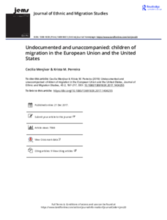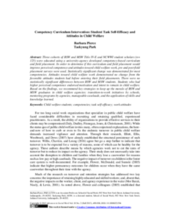Displaying 1521 - 1530 of 2221
Immigrant rights advocacy groups and non-profits in the US came together to file a complaint in December 2017 with the U.S. Department of Homeland Security in response to the increase in parents separated from their children upon entry into the US along the southwest border.
The purpose of this mixed methods study was to assess the experiences of child welfare workers trained in Family Finding and to assess the experiences of the youth who participated in Family Finding.
In this introduction to a special issue on unaccompanied migrant minors from the Global South to Europe and the U.S., the authors seek to shed light on what resources and experiences unaccompanied migrants arrive with, stressing these young migrants’ challenges at each stage prior to arrival and the challenges they face navigating the receiving context.
According to this article from the New York Times, the Trump administration in the US has approved a new policy to separate parents from their children when being detained for illegal entry into the country.
This study examined the relationship “Class-Based Visibility Bias” (CBVB) using statewide individual-level data in four states (Idaho, Michigan, Missouri, and New Hampshire) and nationwide county-level data.
The current qualitative study is designed to address the gaps in the research literature on the needs of unaccompanied children in foster care in the US.
This study evaluated a university-agency developed competency-based curriculum and field placement on child welfare for BSW and MSW students.
This article, with accompanying cartoons, explains the lack of support given to new parents (particularly mothers) in caring for their children in the United States, and, to a lesser degree, in France.
This qualitative study explored youth participation from the perspectives of 42 primary foster youth advisory boards facilitators in 34 states in the USA.
To help promote the use of administrative data to inform child welfare programming, this paper provides an overview and demonstration of a Feedback Improvement System with web-based visualization technology to illustrate child- and agency-level child welfare data from the state of Utah.


